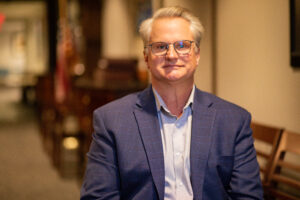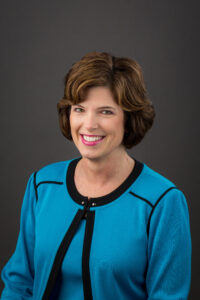Holly Bonner
In its most recent report on national health coverage, the United Census Bureau reported that 8.5 percent of people, or 27.5 million, do not have access to health care.
There’s a long list of reasons people don't get the care they need including hefty medical bills, long wait times, lack of transportation, schedule conflicts and more.
Whatever the reason, Dr. Debbie Daniel feels your pain. That’s why she opened Riverfront Medicine Direct Primary Care (DPC), a practice known for its same or next day appointments, affordable care and friendly customer service.
“I love medicine and I’m tired of my life being driven by insurance companies,” Daniel says.
As a trusted board certified family medicine physician, Daniel has spent 24 of her 30 years in primary care operating a solo practice.
Riverfront Medicine DPC is a Chattanooga-based medical practice turning the tables on the traditional insurance-based medical model. Eliminating co-pays and third-party insurance providers, Riverfront Medicine DPC offers convenient and quality care for a monthly membership fee of $60 per person and $20 per child.
About 1,000 DPC practices in 48 states serve over 300,000 patients, and DPC is becoming a more common model. Along with full primary care, members receive low-cost labs, x-rays and procedures including cosmetic treatments.
“DPC is the perfect solution for those who can’t afford insurance, have a high insurance deductible or are interested in a more comprehensive and patient-focused primary care facility,” Daniel says.
Improving employee retention and morale, the membership-based model also caters to small businesses. Elaine Merrit, BNI Southeast Tennessee’s Executive Director, recommends Riverfront Medicine to business owners who want to opt out of expensive health insurance plans.
“Employees will be healthier because they can take advantage of Dr. Debbie’s service when they need it, instead of being afraid to go because of high deductibles,” Merrit says.
Whether you are a college student, entrepreneur or retiree, DPC helps you make your health a priority by offering expanded communication options and after-hours access when needed.
After an initial appointment, new patients can receive direct medical access through call, text, email, Skype and FaceTime. These alternative forms of communication became even more popular in the health care world during the coronavirus pandemic.
“Because she is not under any stipulations, Dr. Debbie has the ability to take her time, ask more questions and be proactive with your health,” Merrit says. “I’m not just a number on a lab chart.”
Trend: How is the DPC experience different than your average experience at a health clinic?
DPC is medicine the way it should be: one hour appointments where you’re seen on time. Enhanced access after hours for urgent needs. Low-cost labs, x-rays and procedures without the additional hassle of a third-party insurance or billing facility.
Trend: What type of patient gets the most value from this model?
All. Infrequent medical users – healthy younger folks who don’t want to go to the doctor’s office but want easy access when and if they need it, as well as the older person with lots of health issues, tests and appointments.
Trend: Why might you choose DPC over regular insurance? How is DPC a good supplement to regular insurance?
Our model saves money for those with high deductible plans. Patients receive better care with our model and your doctor spends time with you for more cost-effective care. We are customer-service oriented. You don’t have to interrupt your day and come in here.
Trend: How does DPC help small businesses specifically?
DPC provides full primary care to employees. It’s cost-effective and helps with employee retention. Although it’s not insurance, it covers all care needs for $50/mo.”
Trend: How do you think the DPC model is changing the future of healthcare?
It's customer-service oriented. This model draws up the way medicine used to be in the first half of the 21st century, without insurance. Patients used to go straight to their physicians where they could get appropriate and neighborly care.
Dr. Debbie Daniel’s over 30 years of extensive medical education and training ranges from The University of Memphis to East Tennessee State University and residency at Bowman Gray School of Medicine at Wake Forest University. Dr. Debbie is a trusted board-certified family medicine physician and has also maintained a successful solo practice for over 24 years. Learn more here.





